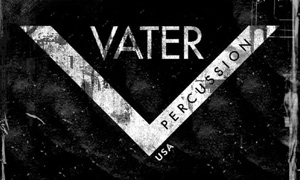 In-Studio With: Ron Keck – Subcat Studios
In-Studio With: Ron Keck – Subcat Studios

Ron Keck is owner and engineer at SubCat Studios, an independent, multi-purpose, state-of-the-art recording studio and music education center located in Syracuse, NY (USA). Subcat is one of our satellite studios around the country where various segments and episodes of Studio Jams and MUSICMAKERS are taped. Ron shares his perspectives on owning a music recording studio in today’s highly competitive environment in a nice Q&A exchange.
Tell me a little about Subcat Studios. How is it different than most other recording studios?
Subcat Studios started like most studios, in a basement or a bedroom 21 years ago. I was fortunate to get my hands on the very first hard disc based system. Back then it was called Sound Tools. Today, it’s called Pro Tools. Since then, SubCat has grown into a full production house that includes duplication, post production, theater, graphic arts, and now education. We have an incredible support team and our facilities have allowed us to continuously develop a business plan based on changing times.
What are your biggest challenges in being a Studio owner?
Because of our diversification, organization is the biggest challenge. Every Monday morning we have staff meetings to discuss upcoming sessions and the weeks past performance. This includes everything from booked studio hours, engineer’s work ethics, equipment problems, building maintenance, anything that makes our business smoother and stronger.
What do you enjoy most about being a recording engineer? Any tips on how young engineers can best gain studio experience?
What I love about engineering is the ability to interact with musicians with the technology that is available. The best suggestion I can give to young engineers starting out is to intern at a “working studio.”
Who are some of the folks you have enjoyed working with in the studio over the years?
Kim Simmonds from Savoy Brown, Joe Whiting, Andy Rudy, Brand New Sin, Stevie Tombstone and Mark Doyle, to name a few. The majority of the musicians are from our area. However, I’m hoping that will change.
Can you share details on one of your more memorable studio experiences? What made it so special?
One project that is becoming a recent favorite is one that is going on now. The makeup of the group is a drummer, bass, electric guitar, trombone and trumpet. This is the second time in the studio for these guys – and because of the past experience – their new CD has come together much faster, and with better results. These guys have such energy. We tracked these guys all live. Horns in tracking A, Drums in live A, vocals in an ISO room, guitars in B tracking. It was like watching a private concert. One of the days of tracking was on St. Patrick’s Day with all their friends on hand to watch them. It was awesome catching that kind of energy on disc. Their positive attitude really allowed us to think outside the box. Collectively, their diverse influences come from bands such as: The Beatles, Green Day, Miles Davis, Duke Rubillard and others. The name of the band is “THE ACTION.” Some pretty cool stuff.
As a recording engineer, what is your specific role in a recording session?
Effective communicate with the artist to help develop a game plan. This would include, among other things, the instrumentation to be tracked, how many songs to be recorded and the configuration of the headphone system (THIS IS BIG). Try to get a handle on the mics to be used before the session. Ultimately, you have to make the artist feel comfortable. At times you’ll find yourself playing a psychologist.
You have a reputation for being very supportive of local and regional musicians? Why is that?
They are responsible for us being here. We can’t afford to have someone walk away feeling dissatisfied. People have a tendency to talk more about the bad than the good.
Any tips on being “diplomatic” with the producer, or various musicians, in the studio? How do you know when it’s best to provide suggestions, or when it’s best to simply be quiet and do what you’re told?
I simply let the producer know that I’m there to support them and that I would give an opinion if they ask for it. Usually I’m pretty quiet.
How do you begin to define your recording approach when you set up to record a drummer, using his own drum kit?
Being a drummer myself helps, and over the years I have developed a very methodical approach. I first start by understanding the style and getting to know what the drummer likes. Lots of times I will try to find pictures of the drummer’s set up before they come In. In most cases we end up using our own kit. But I always make sure the drummer is comfortable. The bottom line is effective communication.
How can an audio engineer play a significant role in helping create the “vibe” at a session?
BEING POSITIVE!!!!!





